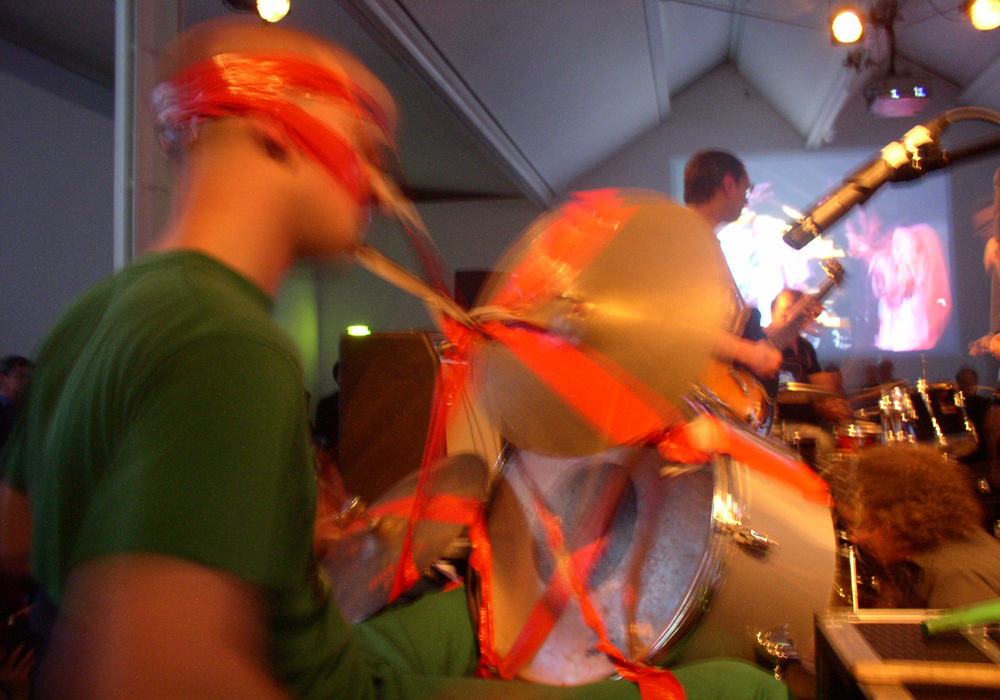
Sunburned Hand of the Man
Sunburned Hand of the Man
First live show outside the USA featuring one-off film pieces and live theatre from the ringleaders of the ‘weird new America’ psych folk explosion.
Arika have been creating events since 2001. The Archive is space to share the documentation of our work, over 600 events from the past 20 years. Browse the archive by event, artists and collections, explore using theme pairs, or use the index for a comprehensive overview.

First live show outside the USA featuring one-off film pieces and live theatre from the ringleaders of the ‘weird new America’ psych folk explosion.

Seven women recite monologues composed from texts from the vibrant years of the Weimar Republic. A kind of cultural echo: an experience of histories brought to the present.
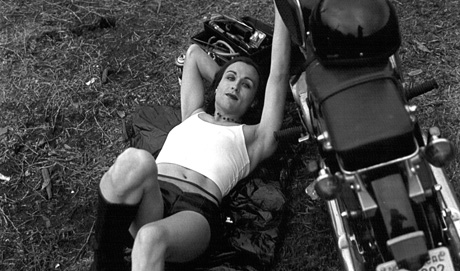
An audio and video investigation of gender cults, Catholicism, hauntings and nuns’ use of audio devices…

Three workshops lead up to an open invitation to improvise with the festival as concert. The last four hours of the Sunday 14 at Instal 10 were devoted to presentations devised during the three workshops. The material conditions (time, space, facilities…) were the instruments. From there anything could happen.

Solo organ performance by German composer Eva-Maria Houben, which focuses on ‘nearly nothing’ to expand the way we listen.
Sean and Taku share an interest in structure, space and time. A spartan, abstract, considered and surprisingly musical set.
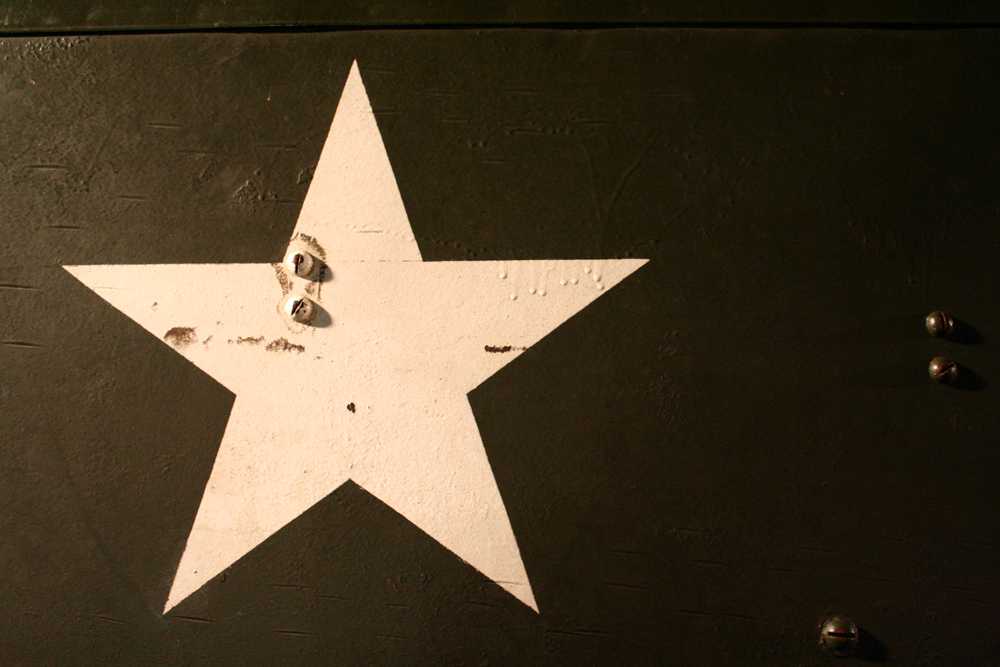
Akio Suzuki and John Butcher performing in an abandoned oil tanker on Hoy.

Rather than asking the state for services, what kinds of change are made possible when we prioritise people supporting each other?
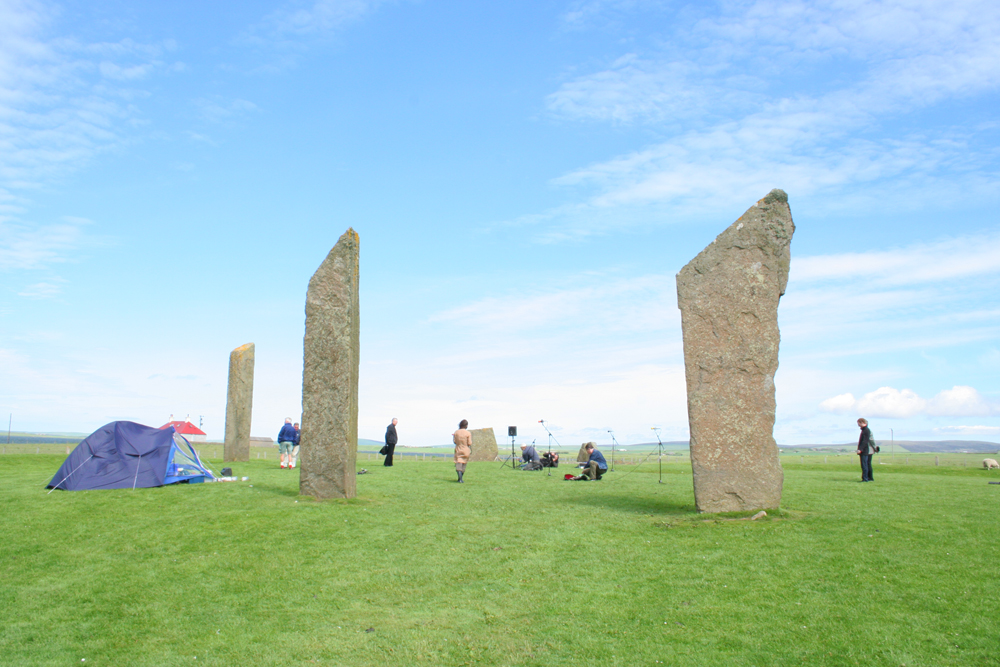
Akio Suzuki and John Butcher performing by the Stones of Stenness, instead of the Ring of Brodgar, because of bad weather.

What might Carter and Parker’s collaboration tell us about our own performances of responsibility and liberty, whether individual, social or musical?
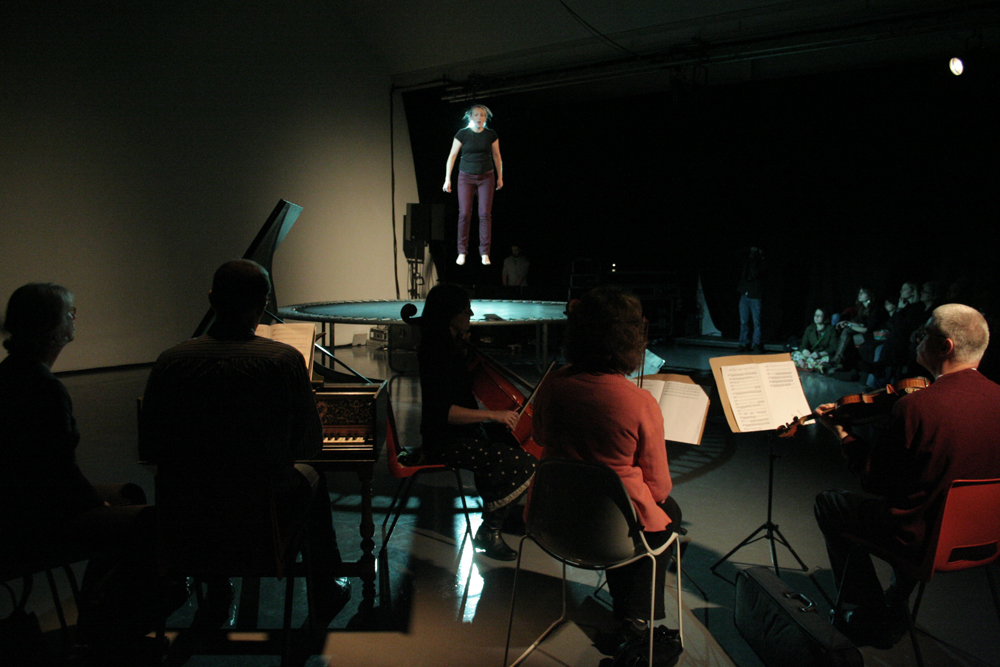
A chorister attempting to sing Vivaldi, with live accompaniment, while trampolining for 20 minutes.

UK conceptual/ drone/ noise artist, who is seriously posing what might seem to be unanswerable questions of music.